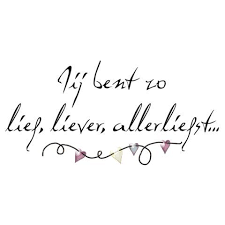When and how to use “je, jij, jou, jouw” in Dutch?

How should I use ‘je’ or ‘jij’ in Dutch? Is there a difference at all? And what about the two words ‘jou’ and ‘jouw’? They look alike in spelling and pronunciation, but how do I know when to use which one correctly?
During my Dutch lessons I get these questions quite often. I fully understand that the words ‘jij, je, jou, and jouw’ are confusing. So time to explain!
Je versus u
Before explaining the differences to you about ‘je, jij, jou and jouw’ I would like to emphasize that ‘je’ is always the informal form to use in Dutch, whereas ‘u’ is the formal form. Only if you know someone quite well or this person tells you to use ‘je’ you can use ‘je, jij, jou, jouw’.
What are the differences?
- je / jij (= you = onderwerp = subject)
- je / jou (= you = meewerkend voorwerp = indirect object)
- je / jouw (= your = bezittelijk voornaamwoord = possessive pronoun)
Je, jij
There is indeed a difference between ‘je’ and ‘jij’. For example:
- “Dank je wel!” Thank you very much! Incorrect: Dank jij wel!
- this is the informal way to thank someone. Then use je. (versus the formal way: Dank u wel).
- “Dus jij bent Jan!” So you are Jan! Incorrect: “Dus je bent Jan!”
- jij is used to emphasize the person you talk to.
Je, jou
- “Ik geef je / jou / aan jou een boek.” I give you a book. Incorrect: “Ik geef jij / jouw / aan je / aan jouw een boek.”
- ‘jou’ again is to emphasize the person you give a book to.
Je, jouw
- “Wat is je / jouw naam?” What is your name? Incorrect: “Wat is jou naam?”
- ‘jouw’ also stresses the person you ask for her or his name, and again it is informal.
Video about ‘je, jij, jou, jouw’
Nursery Rhyme
“Ben je boos?” is a well-known Dutch nursery rhyme in which you hear ‘je’ in two different ways:
- as a subject: ‘ben je’ (are you)
- as a possessive pronoun: je (=jouw) hoed (your hat)
Ben je boos?
Pluk een roos!
Zet hem op je hoed,
dan ben je morgen weer goed.


lawrence
jij / je.
Neem bijvoorbeeld de vraag “ben je boos?”, dit wordt in de algemene zin gebruikt, denk ik.
Wanneer ik deze vraag persoonlijk aan iemand wil stellen, kan ik dan “jij” gebruiken?. Dus “ben jij boos?”.
sandra
Ja, dat klopt helemaal, Lawrence. Stel je deze vraag heel gericht aan iemand, dan kun je inderdaad ‘jij’ gebruiken. Maar stel dat je met z’n tweeën bent, dan is het niet nodig om ‘jij’ te zeggen, omdat die ander begrijpt dat deze vraag voor hem of haar is bedoeld. Dan kun je vragen: “Ben je boos?”
Rachael
Hi, I’ve never heard of an “indirect subject”. Is this specific to Dutch, or is the same as the object? Thanks!
sandra
Hi Rachael,
you are right! It should be ‘indirect object’.
Thank you for pointing it out to me.
Groet,
Sandra
Rany
Thanks for the explanation… what about a sentence like: “Hoe voel je je?”
Can it be said differently? For example: “Hoe voel jij jou?”, or “Hoe voel jij je?”
sandra
Hi Rany,
Good question! Using ‘jij’ means that you emphasise the other to whom you address your question. The reflexive pronoun ‘jou’, however, does not exist. The only situation in which you can use an emphasised reflexive pronoun is when you use ‘mij’ in “Ik voel me / mij niet zo goed”. So, it is correct to ask “Hoe voel jij je?”, but not “Hoe voel jij jou?” (even though this may be said by some Dutch or in some dialects).
Hope this helps!
Sandra
Keren
Bedankt, dat is een goede uitleg
Sandra Wormgoor
Graag gedaan, Keren!